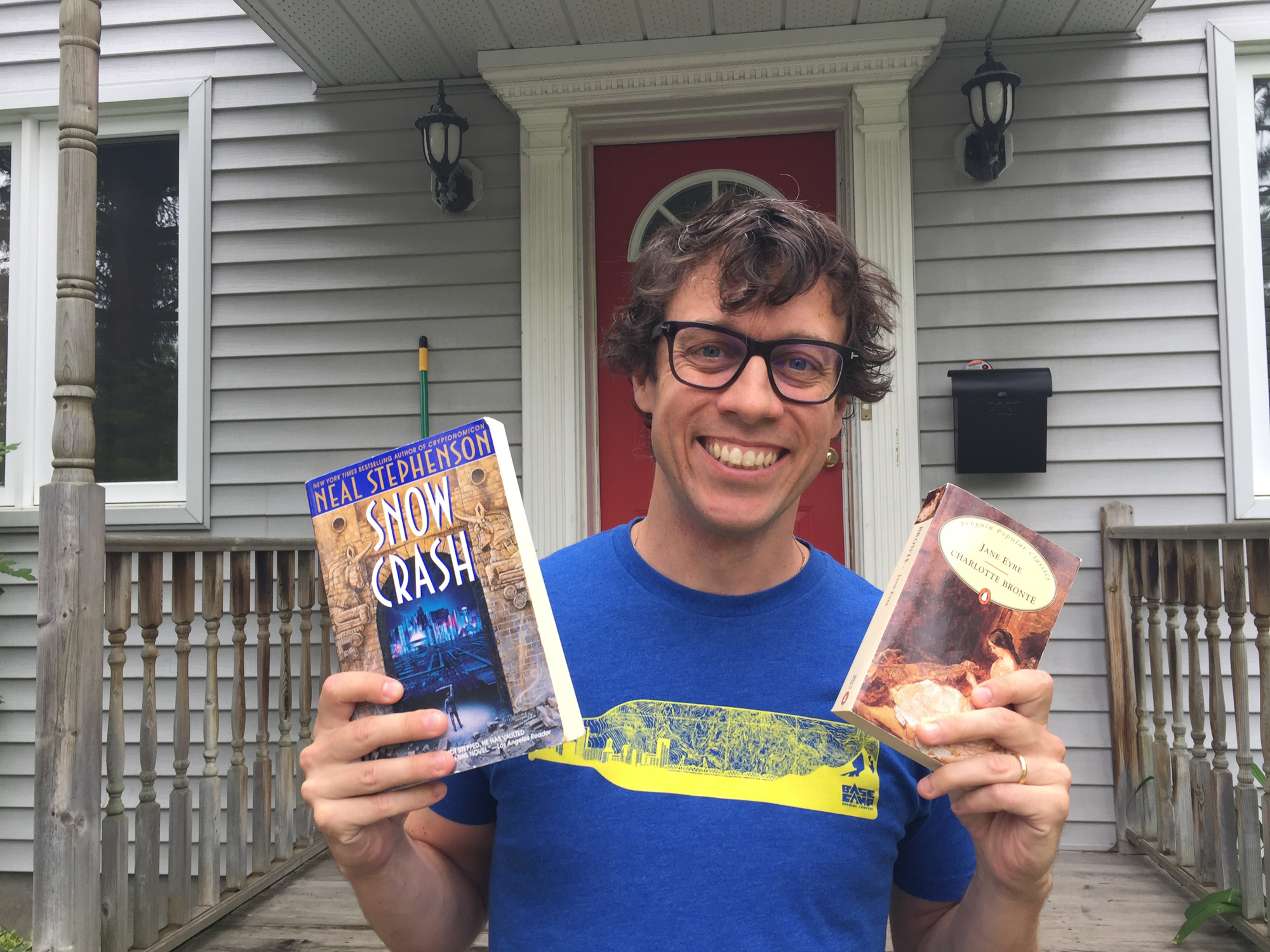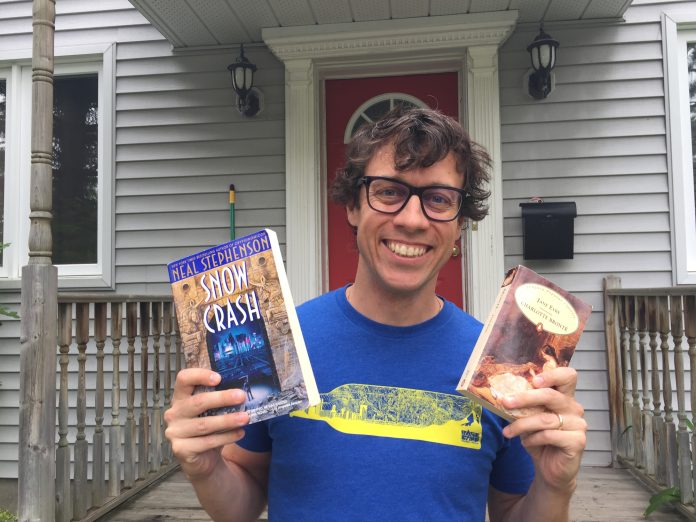By Jared Davidson –
Grant McSheffrey’s Jeopardy winning streak ended in March. Taking his nearly seventy-thousand dollar winnings, Grant retired from the world of televised trivia and came home to Westboro to his family. His boyhood dream of being on the game show fulfilled, Grant now had time to focus on other things, one of which was reading.

A visit to the Elmdale Book Fair netted him two books he had been meaning to read: Snow Crash by Neal Stephenson and Jane Eyre by Charlotte Brontë. He had heard good things about both books, and knew both were considered to be “classic literature.” He was curious about the books, and Grant likes to follow his curiosity; it’s part of why he did so well on Jeopardy.
“I’ve always just been naturally curious about things and wanting to know more, learn more,” he says. “Pop culture is one of those categories where it’s really important but at the same time it’s so broad that it’s hard to really study for it.”
Grant naturally gravitates to unexplored areas of pop culture. Since these titles are considered essential reading, they made sense for Grant, and he enjoyed both books. Snow Crash, a 1992 novel about the dystopian future of software was fascinating to Grant as a study, not into the future, but into the past.
“It’s interesting to me to see how people in different times thought, and what they thought the future would be like,” he says. It turns out in the distant past of 1992, people had a relatively good idea of what the Internet would become.
Stephenson’s virtual world is habitable, with avatars representing characters in the world.
“He’s basically describing The Sims. It’s really interesting how close it ended up being.”
Looking at the future through the lens of the past seems to intrigue Grant. It’s for a similar reason that he picked his second recommendation, Jane Eyre. Grant was interested in Brontë as a feminist of her time, who depicted an independent woman who made her own choices. Having recently become a father of a young girl, he also wanted to read the book with that perspective.
The book was, in Grant’s words, “Not something [he] would naturally gravitate to,” but he found it to be a gripping, compelling read that is still relevant today. One thing that he found interesting was how often the book seemed to lapse into cliché, and whether it really was cliché at the time.
“I was left wondering how much of that is because this is such a well-known book and it influenced so many other books,” says Grant.
Grant is the kind of man who likes to put things in context, and so it makes sense that his books would be so interesting within their context. These are the kinds of summer reads that you’ll want to read more about once you’re finished.
This post is part of our annual summer reads issue. Read all of our 2017 profiles right here.
